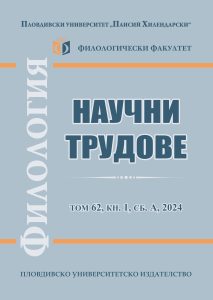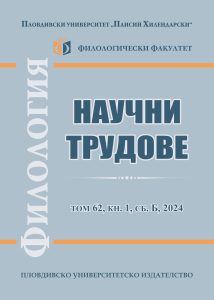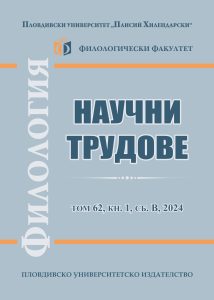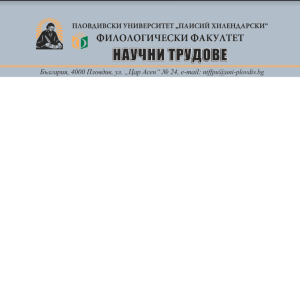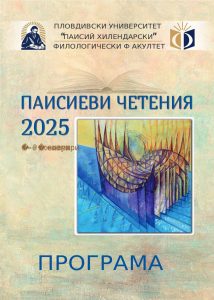VOL. 58, BOOK 1, PART А, 2020 Full text (Bg)
Author: Krasimira Aleksova, Stefka Fetvadzhieva
Affiliation: St. Kliment Ohridski University of Sofia
Abstract
The article examines the semantic and syntactic positions in which participles in the Bulgarian language can have degrees of comparison. The first part of the article presents Bulgarian participles and their grammatical characteristics. The second part demonstrates that when a participle functions as
an adjective, it may have a comparative or superlative degree formed and used just as with the adjectives. When a participle is a part of a composite verbal form, i.e., when used as a verb, it may have degrees of comparison depending on its lexical meaning. Cases are discussed in which aorist participles and past
passive participles combined with the verb to be can be considered either as verb forms or as predicatives, and diagnostic tests are proposed. Finally, although verbs may have degrees of comparison, this phenomenon is not regular and is typical of colloquial speech.
Key words: present active participle, aorist active participle, imperfect active participle, past passive participle, comparative degree, superlative degree


